Young and trans: How does access to gender-affirming care for minors differ across the EU?
Just two months shy of turning 18 years old, and over a year after he started questioning his gender, Alex became the youngest person to access trans healthcare at his health clinic in France.
“I was very happy and relieved because it was a crucial moment. I'd just ended high school … and the timing was very important to me,” Alex told Euronews. “Because my voice was starting to change about three months after the first term [of University].”
“And I was very relieved that I could try to live without people noticing that I'm trans.”
The process for Alex -- whose name has been changed for this article -- to access hormones was a relatively straightforward one.
In France, minors can access gender-affirming care, such as puberty blockers or hormone replacement treatment (HRT). But the vast majority of healthcare officials require a psychological assessment to be carried out, a process that could take up to several years.
In Alex’s case, he was able to move through the requirements quickly because of his parent's support and his age. But others may find it more difficult to gain access to the same route.
“I just talked to my endocrinologist, and she said that they were forced to shut down the system because there weren't enough people who want to [provide gender-affirming care]. And because the public hospital in France doesn’t consider it a priority."
“Now, the wait list is very, very long - between eight months and a year for the first appointment, when for me it was just one or two months."
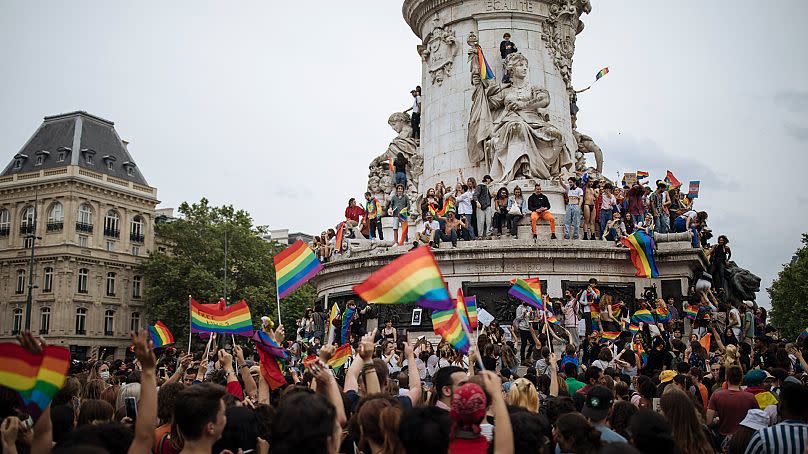
Deadliest year for LGBTQ+ people in Europe in a decade
For other young people across the European Union, the experience of being transgender varies dramatically depending on where they live.
In February, Spain passed legislation allowing anyone over the age of 16 to self-declare their gender. That same month, Sweden moved to block hormone therapy for people under the age of 18, except in rare cases.
And while Finland removed its requirement that adults be sterilised before changing their gender markers, Croatia was debating if gender-affirming care should be limited to people older than 21.
Last year was also one of the most violent in almost a decade for Europe’s LGBTQ+ community, particularly for trans people, “both through planned, ferocious attacks and through suicides in the wake of rising and widespread hate speech,” according to ILGA-Europe, one of the continent's largest LGBTQ+ rights organisations.
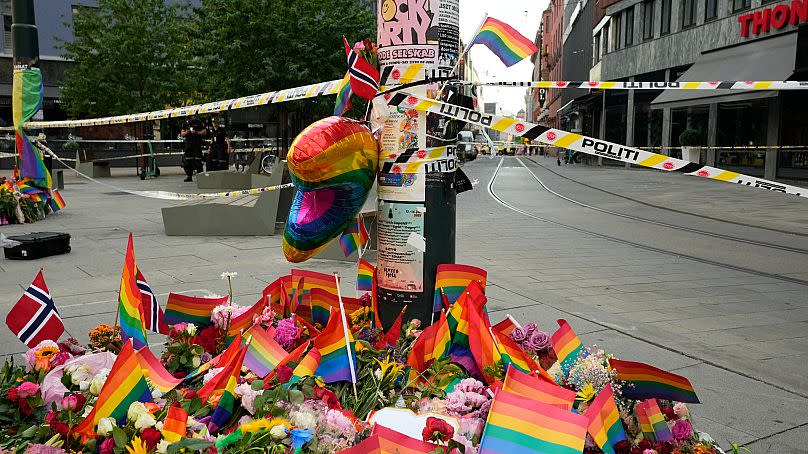
In 2022, a trans man was killed during a Pride event in Germany. That same year, a trans woman was murdered in Estonia. And a cis woman (a person who identifies with the gender they were assigned at birth) was killed in Georgia because she was mistaken for a trans man.
There were also at least two attacks on LGBTQ+ bars: one, which killed two people and injured 20 in Oslo; and another in Bratislava, in which two people were killed.
“This phenomenon is not only in countries where hate speech is rife, but also in countries where it is widely believed that LGBTI people are progressively accepted,” said Evelyne Paradis, the executive director of ILGA-Europe.
The organisation added that Ireland, Spain, Norway, Poland, the UK and Switzerland were just some of the countries that reported a rise in hate speech against trans people last year.
Worst country to access trans healthcare in Europe
Access to transgender care -- particularly for minors -- varies depending on where in Europe a person lives.
In Ireland, it is nearly impossible for anyone under the age of 17 to access trans healthcare, even though they are legally able to do so. This is despite it being one of only 11 countries in Europe that allow people to self-declare their gender. It also provides a procedure for minors to have their gender legally recognised.
It is also ranked as the worst place to access trans healthcare in the European Union, listed under Hungary and Poland, according to Transgender Europe [TGEU], the largest trans rights group in Europe.
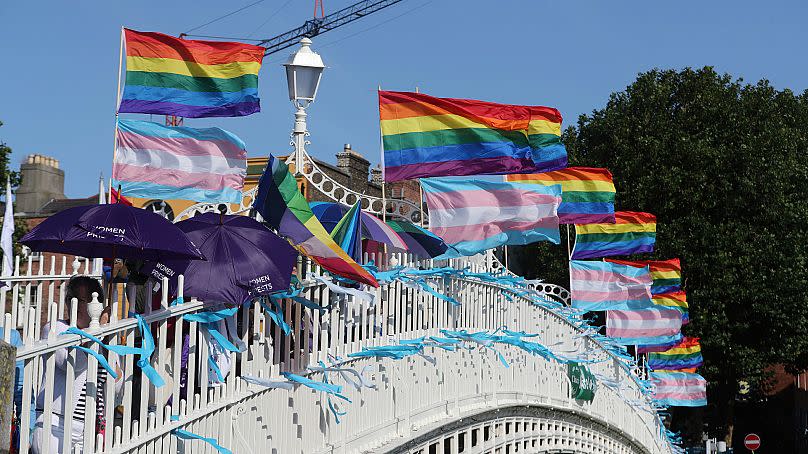
At the heart of this contradiction is the country's medical backlogs. While young people have the right to access care in theory, in practice those trying to enter the healthcare system are faced with a seven-year waiting list. This means access for many people is practically cut off until adulthood.
“There really isn't any gender-affirming healthcare for trans kids in Ireland,” Moninne Griffith, the CEO of Irish LGBTQ+ youth organisation BeLonG To, told Euronews.
“I have heard that some young people and their parents, out of sheer desperation, are trying to access healthcare abroad and online."
She added that they regularly go to either Poland or England for treatment, "but without adequate medical supervision here in Ireland, which is something that's very dangerous and something that we wouldn't recommend.”
The reason for the backlog, Griffith said, is a combination of Brexit, transphobia and the country’s healthcare system, among other things.
Before the UK left the EU, Ireland heavily relied on UK-based clinics through its Treatment abroad scheme (TAS), a programme in the European Union that allows patients to seek treatment in another member state and still get covered for it through their national insurance. With Brexit, that pathway has now been cut off.
Griffith added that because the trans community in Ireland is so small, it isn't a priority in a medical system “that is focused, unfortunately, on the acute side of medical care and intervention.”
Access to gender-affirming care in Spain
For young people in Spain, the situation is very different. In February 2023, the country passed legislation that greatly expanded rights for its LGBTQ+ community, particularly its trans community.
The so-called ‘transgender law’ streamlined the process for anyone older than 16 to change the gender marker on their identification documents: for example, changing their gender from male to female.
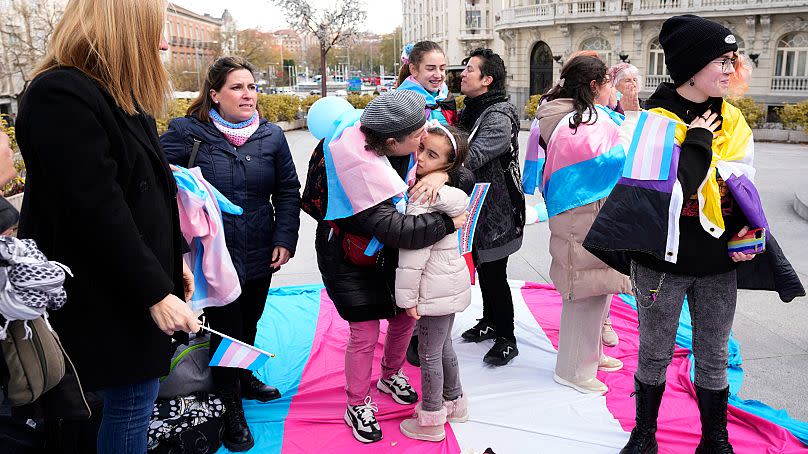
Prior to this, people were required to undergo medical treatment for two years and have a medical diagnosis of gender dysphoria before they could change their gender marker.
Spain is also ranked as the second-best place to access trans-healthcare in Europe, after Malta, according to TGEU.
According to Uge Sangil, the president of FELGTBI+, Spain’s largest LGBTQ+ organisation, the protocol for a young person in most parts of the country to access care is relatively straightforward. Their family doctor can refer them to a clinic that will help them gain access to the care they want, be it puberty blockers or hormones.
And if they are very young, they can also easily change their name on their school's register, even before they are allowed to legally change their identity documents.
But despite this, some people -- particularly young people -- can still face challenges to access healthcare, depending on which part of the country they live in.
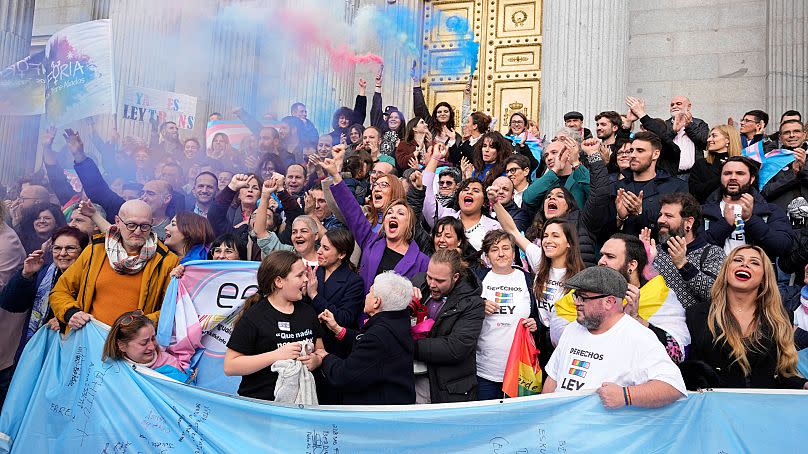
Healthcare in Spain is a devolved power, meaning rules around trans healthcare vary depending on the region. And in places such as Castilla y León, which is partially controlled by the radical-right Vox party, access is not guaranteed.
According to Sangil, “Castilla y León is one of the worst places in Spain to access gender-affirming healthcare. And that is because it does not have a protocol in place for people to access care.”
So, in theory, people in Castilla y León have “access to a general practitioner endocrinologist and they can do the treatments, but there is no guarantee that this will actually happen."
That is because, according to Sangil, access to healthcare for young people in this region depends on if individual doctors want to treat them.
And this is a problem because “we can’t rely on the goodwill of medical professionals.”
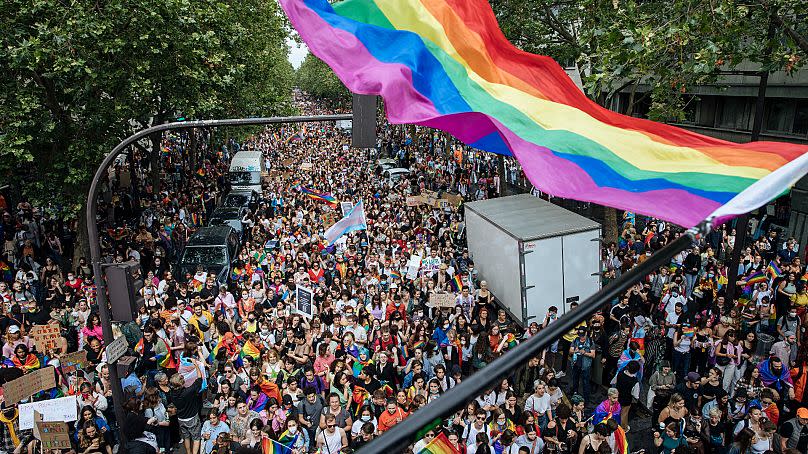
'It's not about hormones'
Across the European Union -- and the United States -- transgender minors are becoming a major talking point in the media and the focus of new legislation restricting their access to healthcare.
But according to Alex, while a lot of that conversation is about HRT, people also regularly ignore major parts of the lived experience of trans youth. And, while access to hormones is important, there are also other ways to help young people.
"Most of the time we feel bad because people don't recognise us as what we are," he said. "And I think that is the biggest part about being trans. It's not about hormones.
"I think if people could just say, oh, 'I'm a man', [and other people could respond] 'you're a man'. I think it would make it [...] way easier for us to live."
"For me, I think when my family started to accept [my gender] and call me by the right pronouns and name, I think that did half or more of the job. It was great."

 Yahoo News
Yahoo News 
